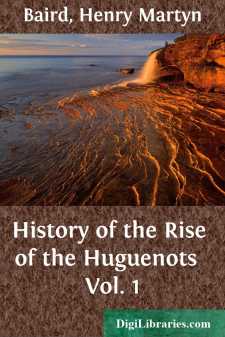Categories
- Antiques & Collectibles 13
- Architecture 36
- Art 48
- Bibles 22
- Biography & Autobiography 813
- Body, Mind & Spirit 142
- Business & Economics 28
- Children's Books 14
- Children's Fiction 11
- Computers 4
- Cooking 94
- Crafts & Hobbies 4
- Drama 346
- Education 46
- Family & Relationships 57
- Fiction 11829
- Games 19
- Gardening 17
- Health & Fitness 34
- History 1377
- House & Home 1
- Humor 147
- Juvenile Fiction 1873
- Juvenile Nonfiction 202
- Language Arts & Disciplines 88
- Law 16
- Literary Collections 686
- Literary Criticism 179
- Mathematics 13
- Medical 41
- Music 40
- Nature 179
- Non-Classifiable 1768
- Performing Arts 7
- Periodicals 1453
- Philosophy 64
- Photography 2
- Poetry 896
- Political Science 203
- Psychology 42
- Reference 154
- Religion 513
- Science 126
- Self-Help 84
- Social Science 81
- Sports & Recreation 34
- Study Aids 3
- Technology & Engineering 59
- Transportation 23
- Travel 463
- True Crime 29
Henry Martyn Baird
Henry Martyn Baird (1832–1906) was an American historian and professor known for his extensive work on the Protestant Reformation in France. He is best known for his three-volume series on the history of the Huguenots, including "The Rise of the Huguenots," "The Huguenots and Henry of Navarre," and "The Huguenots and the Revocation of the Edict of Nantes." Baird was a professor of Greek at New York University and later shifted his focus to history. His scholarly contributions significantly advanced the understanding of religious conflict and Reformation history in Europe.
Author's Books:
Sort by:
A REVIEW OF THIS WORK, Occupying nearly four columns, appeared in the New York Tribune of Dec. 30th, 1879, from which the following is extracted. "It embraces the time from the accession of Francis I. in 1515, to the death of Charles IX. in 1574, at which epoch the doctrines of the Reformation had become well-grounded in France, and the Huguenots had outgrown the feebleness of infancy and stood as...
more...
THE FIRST CIVIL WAR.Inconsistencies of the Edict of January.The Edict of January was on its very face a compromise, and as such rested on no firm foundation. Inconsistent with itself, it fully satisfied neither Huguenot nor Roman Catholic. The latter objected to the toleration which the edict extended; the former demanded the unrestricted freedom of worship which it denied. If the existence of two...
more...



